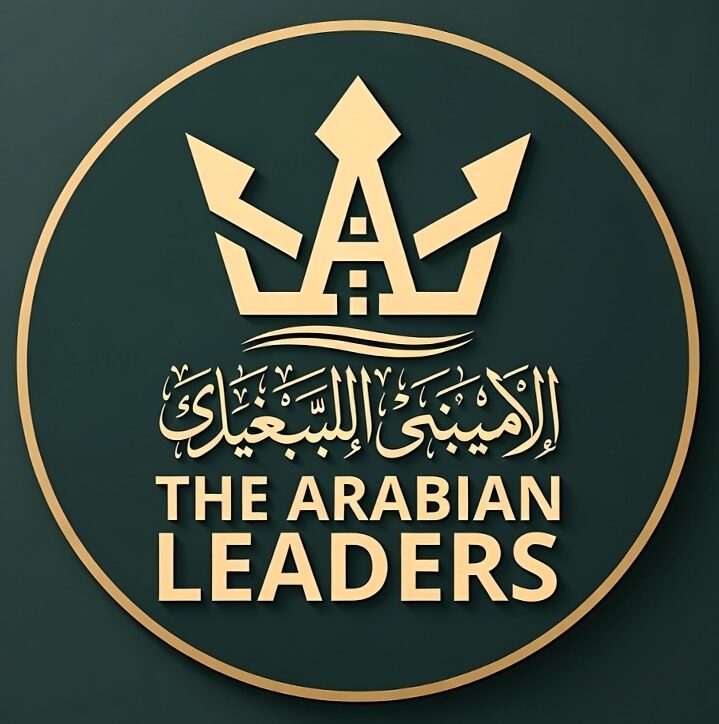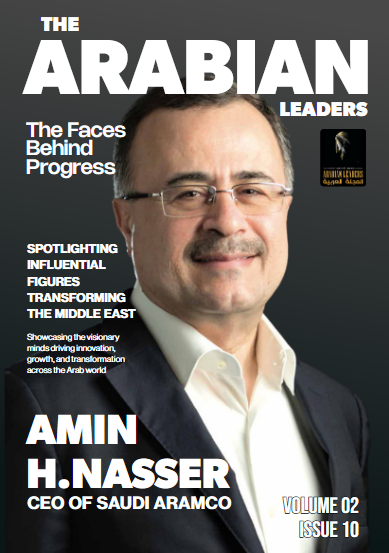In an era where the travel and tourism industry is undergoing profound transformation, sustainability has become more than a trend—it is a necessity. At the intersection of cultural preservation, economic development, and environmental stewardship stands Silvia Barbone, a global pioneer in sustainable tourism. Known for her robust expertise in project management, policy advising, and cross-continental partnerships, Silvia has become a defining voice in aligning tourism development with long-term value creation. Her journey, deeply embedded in European policy, training, and innovation, has now extended to the heart of the Middle East—Saudi Arabia.
Silvia Barbone currently serves as the Vice President of Strategic Partnerships at the Royal Commission for AlUla (RCU), one of Saudi Arabia’s most visionary cultural heritage and tourism projects. Her influence in the Kingdom is particularly significant as it contributes to Saudi Arabia’s broader Vision 2030 goals—a nationwide initiative to diversify the economy, develop non-oil sectors, and position the country as a global cultural and tourism hub.
But long before her strategic role in AlUla, Silvia’s journey was shaped by decades of leadership in Europe’s tourism governance, the establishment of globally recognized tourism management standards, and an undying commitment to embedding sustainability into every project she touched.
Early Years and European Foundations
Silvia Barbone’s career trajectory is rooted in her extensive academic and practical engagement with sustainable tourism. She began as a passionate advocate for responsible travel, but quickly advanced into the realms of policy, consultancy, and institutional reform. Early in her career, she founded Jlag, a consultancy dedicated to sustainable tourism and the implementation of forward-thinking projects across Europe. She also established the Foundation for European Sustainable Tourism (FEST)—a platform that sought to professionalize and certify tourism projects under the lens of sustainability.
These institutions weren’t simply reactive—they were revolutionary. Under her leadership, PM4SD (Project Management for Sustainable Development) was born—a globally recognized certification model for planning and implementing tourism initiatives responsibly. It created the framework necessary for governments, NGOs, and businesses to organize their tourism sectors in a way that minimized harm and maximized community and environmental benefit.
Establishing PM4SD: A Global Methodology
Silvia’s signature contribution to the field of tourism was the creation and dissemination of PM4SD. Inspired by the Project Management Institute (PMI) frameworks but with a sustainable twist, PM4SD allows stakeholders in tourism and cultural heritage to adopt structured processes while prioritizing long-term sustainability.
This approach was critical in a time when over tourism and environmental degradation were reaching crisis levels in many parts of Europe. PM4SD empowered organizations to analyze risks, plan with precision, and monitor outcomes through a sustainability filter. It quickly became a gold standard in Europe and beyond.
Her reach expanded even further when she was selected as an expert by the European Commission to assist in the implementation of the European Tourism Indicator System (ETIS)—a pioneering initiative that allowed destinations to measure and monitor their progress toward sustainability. In this role, Silvia was not just a consultant—she was a policymaker and architect of systems designed to last.
A New Chapter in the Kingdom of Saudi Arabia
While her roots were firmly planted in Europe, Silvia Barbone’s vision was global. Her move to Saudi Arabia marked the beginning of a profound new chapter in her career—one that would blend her mastery of tourism systems with the rapid transformation of a nation seeking global relevance.
In her current position as Vice President of Strategic Partnerships at the Royal Commission for AlUla, Silvia brings her full arsenal of experience to one of Saudi Arabia’s most ambitious initiatives. AlUla is not just a city—it is a canvas of 200,000 years of human history. With UNESCO heritage sites, ancient tombs, and rich natural landscapes, it represents both opportunity and responsibility. Under Silvia’s guidance, RCU has approached development in a way that respects the past while building a future rooted in education, culture, and community.
Silvia’s role at RCU is multi-dimensional. She oversees strategic alliances with global cultural institutions, environmental NGOs, academic think tanks, and tourism experts. Each partnership is curated to strengthen the foundations of AlUla’s offerings—whether through knowledge sharing, talent development, capacity building, or infrastructural support. This role demands both diplomacy and vision, both of which Silvia possesses in abundance.
Strategic Vision for AlUla: Building Partnerships with Purpose
Partnerships are not simply collaborations—they are engines of innovation and growth. Silvia’s leadership style in forming partnerships is guided by strategic intent and measurable outcomes. Under her stewardship, RCU has fostered ties with international organizations like UNESCO, IUCN, and academic institutions such as Harvard and MIT. These relationships are not symbolic—they are deeply rooted in action plans and shared commitments to sustainability.
Through her office, programs are launched to train local communities, empower Saudi women, digitize historical archives, and create environmental preservation plans. Her belief is that AlUla must be more than a destination—it must be a living, breathing model for sustainable tourism in the 21st century.
One of Silvia’s greatest achievements at RCU has been launching capacity-building workshops and tourism innovation labs, inviting youth, professionals, and community members to co-create solutions for local tourism. These initiatives go beyond marketing AlUla—they enable residents to become stakeholders in its future.
Sustainable Tourism: The Heart of Her Legacy
For Silvia, sustainability isn’t a department or a theme—it’s the core of everything. She views tourism not as a product, but as a platform for socio-economic development. She frequently reminds her peers and partners that “tourism can be a force for good if managed responsibly.” And she lives by that mantra.
Whether through carbon-neutral strategies, protection of endangered species, or reducing visitor impact on archaeological sites, Silvia’s approach always centers on resilience and regeneration. Under her leadership, RCU has implemented initiatives like visitor carrying capacity assessments, green energy integration, and community-based tourism models, ensuring that AlUla thrives not just today, but for generations to come.
Educator, Mentor, and Thought Leader
Beyond operations and partnerships, Silvia is also an educator and mentor. She serves as the Director of the Summer School on Leadership and Governance for Sustainable Tourism, an annual gathering supported by the European Travel Commission. Here, emerging tourism leaders are trained in PM4SD principles, sustainability assessment, and strategic governance.
Her impact on students and professionals is deeply felt. Many of her trainees have gone on to lead sustainable tourism initiatives in their own countries, citing Silvia as the catalyst for their transformation.
In addition, Silvia is a prolific speaker at international tourism conferences. She has delivered keynote addresses at the World Travel Market (WTM), ITB Berlin, Green Destinations, and various United Nations forums. Her voice is often sought for panels discussing the future of tourism, especially in a post-pandemic world.
Personal Philosophy and Leadership Style
Silvia Barbone is known for her calm demeanor, sharp intellect, and inclusive leadership style. She operates with the belief that “people are the greatest asset in any project.” She values local knowledge, encourages experimentation, and rewards accountability.
She believes in decentralization and promotes horizontal management structures where community stakeholders are empowered to contribute. In a region like AlUla, where tradition meets transformation, this leadership style is both respectful and revolutionary.
Her ability to navigate multicultural teams, understand local sensitivities, and yet push the envelope of innovation has made her one of the most respected international figures within Saudi Arabia’s new tourism landscape.
Pre-Conclusion: A Reflection on Silvia Barbone’s Influence
As the Saudi Arabian tourism sector continues to grow, it faces the global gaze—one that demands excellence, responsibility, and authenticity. In this context, Silvia Barbone’s role becomes even more critical. She is not merely helping develop a destination—she is crafting a global model.
Through her work at the Royal Commission for AlUla, Silvia has shown the world what can happen when sustainability meets strategy. She has redefined the scope of partnerships—not just as handshakes, but as co-creations of value. In her hands, a memorandum of understanding becomes a catalyst for environmental programs, training sessions, and social innovation labs.
Silvia’s influence extends to how RCU thinks, acts, and presents itself on the global stage. Her insistence on measurable impact, community engagement, and environmental consciousness has made AlUla a beacon of sustainable tourism not just in the Middle East but worldwide.
But perhaps her greatest achievement lies in her ability to mentor others. Many young Saudi professionals—particularly women—see in her a roadmap to leadership. She is proof that one doesn’t have to choose between passion and precision, between development and preservation.
The tourism sector worldwide is navigating uncertain terrain, grappling with climate change, digital disruption, and shifting traveler expectations. In such a complex ecosystem, professionals like Silvia Barbone are rare. They bring not just knowledge, but wisdom. Not just innovation, but integrity.
As we look toward the future, Silvia’s model of leadership—based on partnership, sustainability, and empowerment—will be needed more than ever. Her journey is far from over. And for Saudi Arabia, and the world, that is something to celebrate.
Conclusion
Silvia Barbone is more than a professional—she is a visionary. Her deep-rooted commitment to sustainability, combined with an unmatched ability to forge strategic partnerships, places her among the most influential figures in modern tourism development. In Saudi Arabia’s AlUla, she has found not just a project, but a purpose. And through her leadership, that purpose is turning into a powerful legacy.








